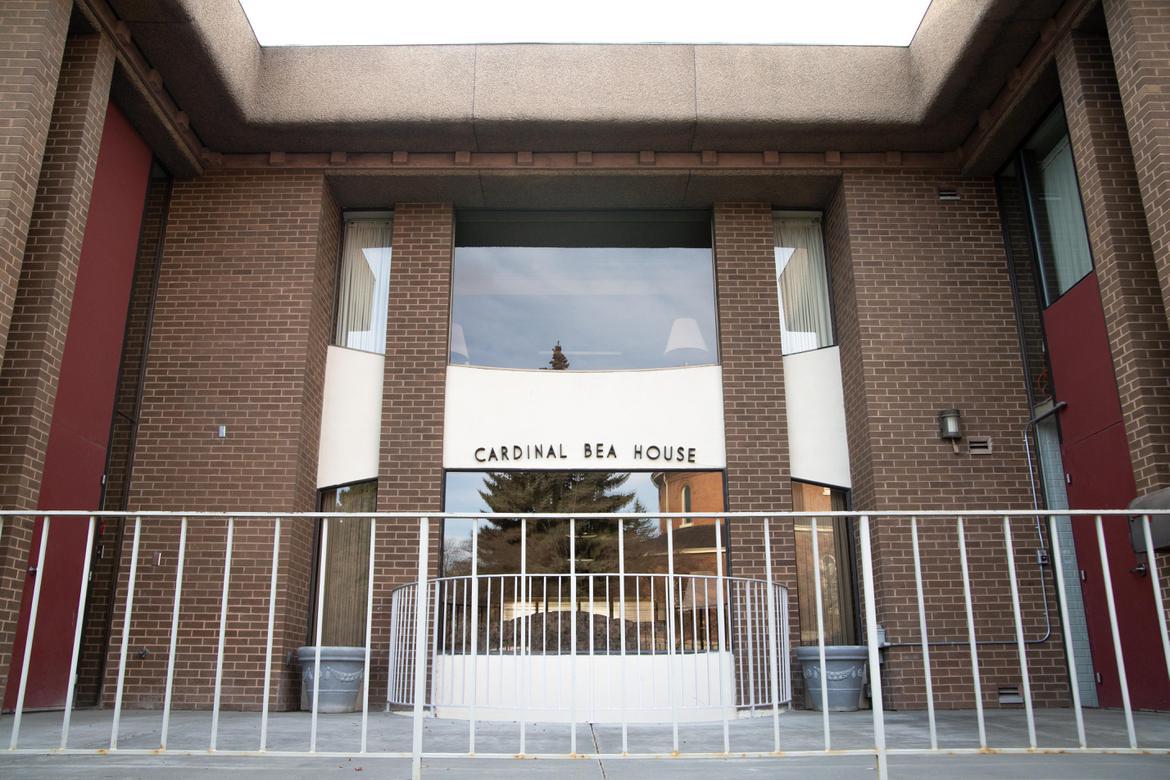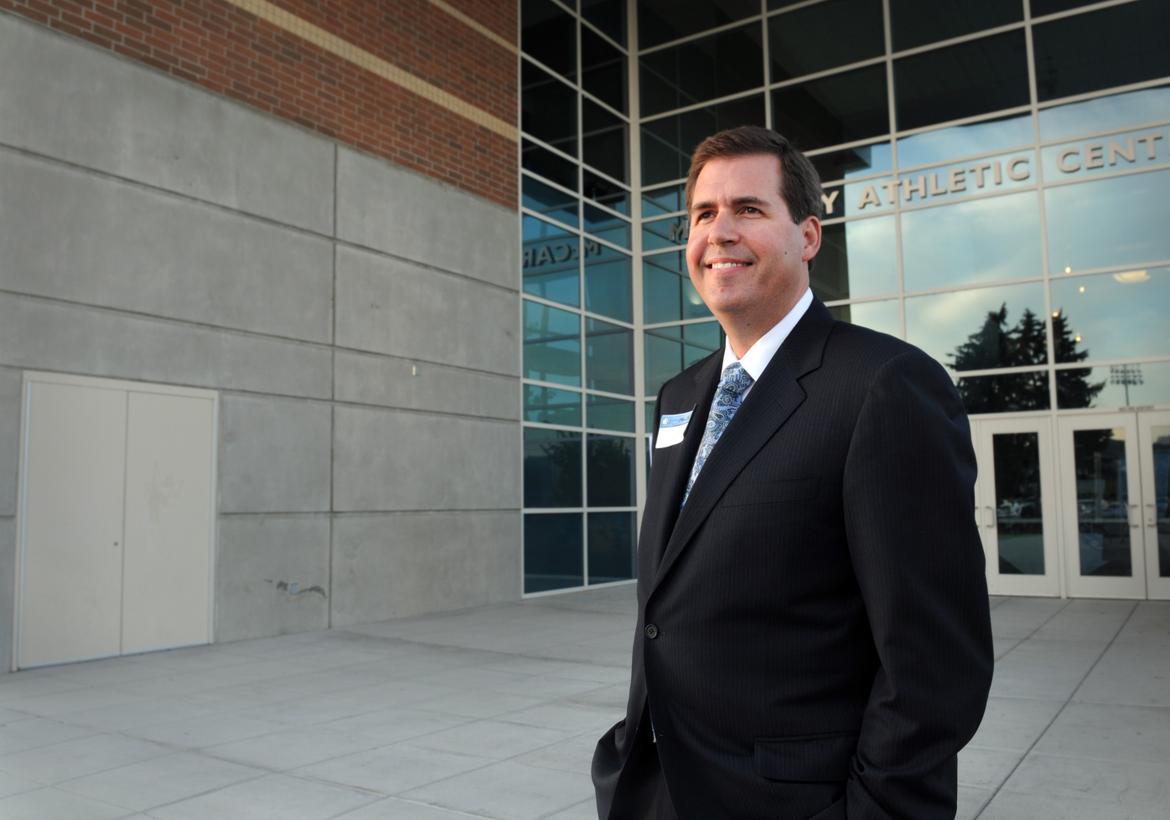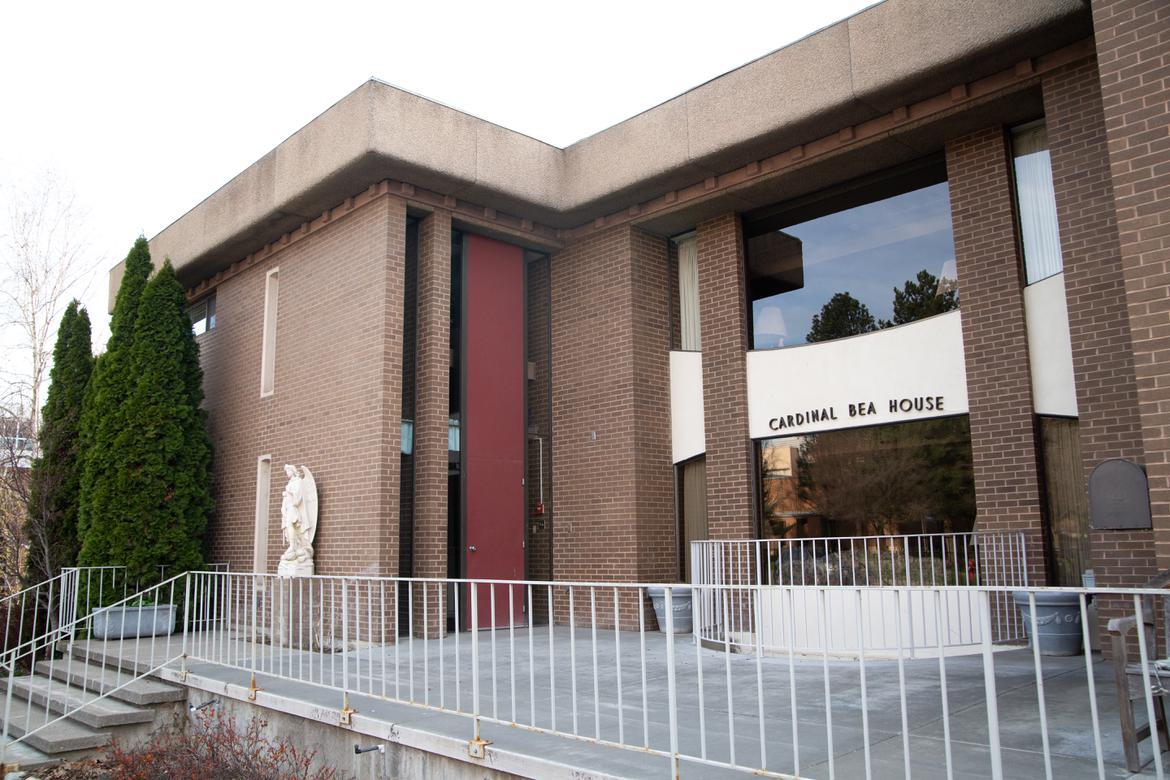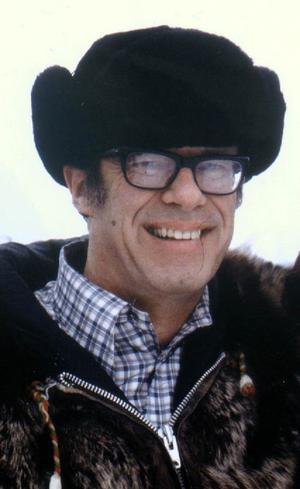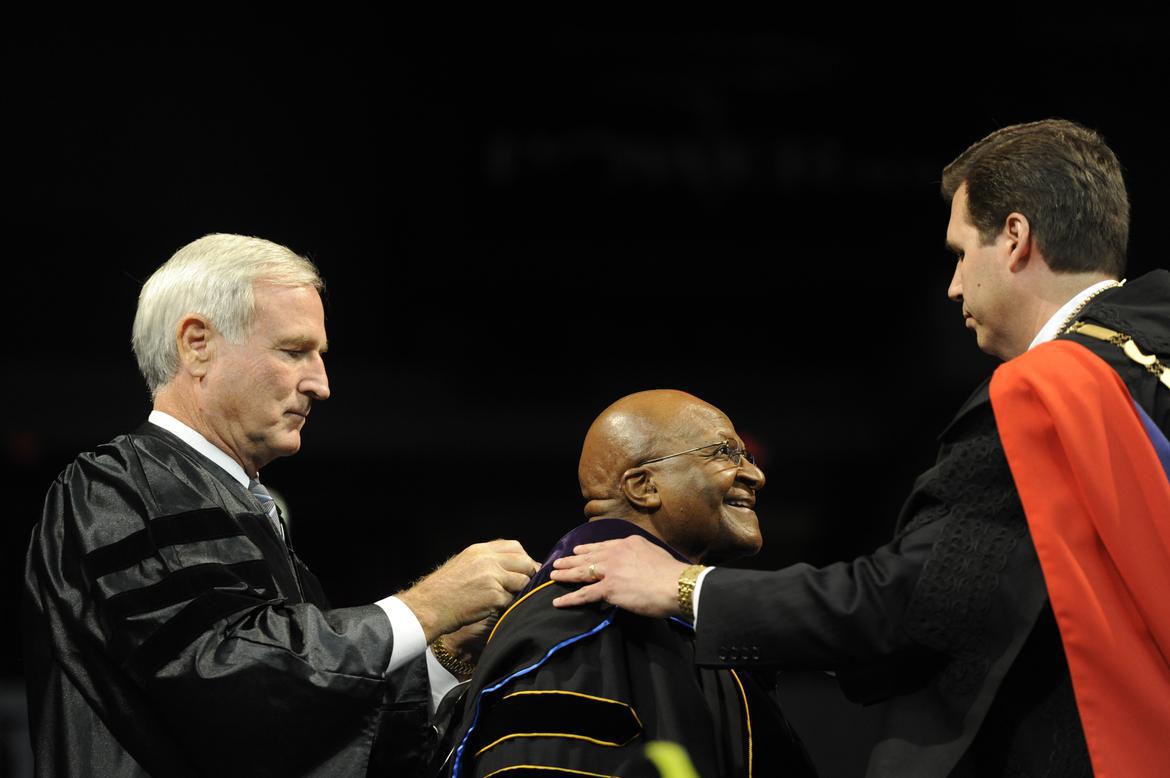|
The question still follows GU President Thayne McCulloh: Did he know? Some are certain that he did
By Shawn Vestal
In recent months, a refrain has arisen from many people who live, teach and study at Gonzaga University: There’s no way Thayne couldn’t have known. That response touches on the insistence by GU President Thayne McCulloh that he was not aware that the Jesuits were sending priests who had sexually abused children to retire on campus, before and during his presidency. Starting in the 1970s, the leaders of the Oregon Province of the Society of Jesus sent 24 priests who had “credible claims” of abuse lodged against them to live in Cardinal Bea House – a retirement home owned by the Jesuits and located on the GU campus – or in the GU-owned Jesuit House, which has been replaced by the Della Strada Jesuit Community. The men sent there included several notorious Jesuits with long and publicly documented histories of abuse, many of them in Native communities in Alaska and the West – histories that were reported in the news media and revealed in lawsuits and bankruptcy actions over more than a decade. A report by Reveal, aired on radio and as a podcast in December, landed like a bomb on campus; while the report was in many ways a compendium of previously reported information, it detailed for the first time the extent of the practice of housing abusive priests on the GU campus. In a statement after the report, McCulloh offered a seemingly contradictory series of assertions about what he knew and didn’t know. The bottom line: He said he was never notified that Jesuits who were on supervised “safety plans” over abuse allegations were living at Bea House or on campus while they were there. In his first interview on the subject since then, McCulloh repeated that bottom line. “At no time during my tenure did the province inform me there were men on safety plans living at Bea House contemporaneous to the time they were living there – at Bea House, at Jesuit House, in our residence halls, anywhere,” he said. He also said he didn’t learn about the practice from any of the news reporting that revealed it as far back as 2005, or from the bankruptcy proceedings that revealed much of it, or in any other ways. He knows that people have a hard time believing that. “I’m asking the same question: How did I miss this, or how did I not know about this, or how did this not land on me?” he said. For McCulloh’s critics, the response partakes of the same spirit of institutional self-protection, silence and evasion of responsibility that has characterized so much of the response to the crisis from Catholic institutions. “The abusers are one problem, but the people acting as a silent ring of protection are just as culpable and should be punished,” said Tim Murphy, an alumnus of GU Law School who works as an attorney in Portland. “I have a real problem with the way the Catholic Church has handled this, and Gonzaga’s handling mirrors the church’s.” ‘Relied upon the province’The Reveal report aired on Dec. 15, as GU was beginning its Christmas break. McCulloh issued a long, written statement in response, in which he addressed his “feelings of sadness, disgust and betrayal.” He emphasized at several points that the Oregon Province of Jesuits made the decisions about placing priests, and did not notify GU when it did so. The statement did not acknowledge responsibility on the part of either the university or McCulloh. McCulloh’s statement seemed to say both that he had learned in 2011 about the Jesuits who were being monitored on supervised “safety plans” at Bea House – and that he had not learned that until 2016. It also seemed to say both that McCulloh had not known about a particularly notorious Jesuit, James E. Poole, living at Bea House until Dec. 7 of last year – and that he had only learned about Poole from the Reveal radio report a week later. Poole’s long, appalling history of abusing Native children in Alaska was a primary subject of the Reveal report, as well as detailed, significant news reporting years earlier in Spokane. “I had relied upon the Province to inform us of any Jesuit whose history might pose a threat to our students or campus community,” McCulloh’s statement read. “I deeply regret that I was not informed of the presence of Fr. Poole, nor any other Jesuits who might pose such a danger, at Cardinal Bea House.” Last week, McCulloh said that when he learned in 2011 about Jesuits on safety plans, he believed that was in the past. “I was given to believe they had died or they had moved away,” he said. He said he was surprised when he was informed in 2016 that the last of those Jesuits were being moved off campus – that, he said, is when he learned there had been such priests living on campus during his time as president. A lot of people find that very hard to believe. I spoke to more than 20 people over the past few months who either teach, study or graduated from GU about their concerns over McCulloh’s public statements; few would speak on the record, but almost all shared a belief that it was hard to accept that he didn’t know – and if he didn’t, that he should have. A former faculty member says she recalls a specific conversation many years ago in which McCulloh told her that abusive Jesuits, including Poole, were living at the Bea House. Several others say it was “common knowledge” among people on campus who followed the scandal. Two student journalists said they had been asked by administrators to remove stories about the issue from the website of The Bulletin, the student newspaper. One of those journalists, former Bulletin editor Joey Thompson, said the administration’s response struck him as part and parcel with the evasions other Catholic institutions have engaged in. “It seems like it should be time for these institutions to come forward with what they know instead of waiting to be found out and coming forward to apologize,” he said. A fraught relationshipThe relationship between Gonzaga and the Jesuits is fraught with tensions dating back to the bankruptcy of the Oregon Province of the Jesuits. At that point, the province was facing lawsuits growing out of a mountain of abuse claims; it would eventually settle those claims for $166 million, paid to almost 500 victims, in 2011. But a part of that process involved efforts by both the plaintiffs and the Jesuits to have GU drawn into the bankruptcy as an asset of the Jesuits. The university successfully fought off those efforts, protecting its assets. One consequence of that was that the relationship between McCulloh, the university’s first layman president, and the Jesuits was fractured, and communication between the university and the Jesuits suffered, he said. McCulloh also has spearheaded efforts to make changes that limit Jesuit involvement in university decision-making. He said that has resulted in a relationship that has, at times, been difficult, though there have been efforts to improve that. People might assume he was included in discussions regarding Jesuit decisions more than he was, he said. He has strived, especially in the matter of the Jesuit sex abuse scandal, to emphasize the separation between the university and the Jesuits, and to emphasize that the decisions were made by the Province. McCulloh said he has focused on communicating about the issue within the university community. He described a series of actions that he has undertaken, including several public addresses in which he took questions from the faculty and others, and the recent announcement that GU would create a commission to investigate the university’s response to sexual abuse and recommend changes. Two university vice presidents who were former Jesuit provincials resigned. “We’ve tried to create listening sessions and circles of conversation,” he said. “I wanted the question of ‘How do we respond?’ to be informed by those conversations and informed through multiple opportunities.” ‘So what?’On Dec. 7 of last year, Jesuits West issued a list of Jesuits who had been credibly accused of “sexual abuse of a minor or vulnerable adult.” Jesuits West is the reorganized province covering 10 Western states. It had been reported in the news media, and was well-known in some circles, that some of the most notorious priests had been sent to live in Bea House. But the release of the list was the first time the extent of the practice became publicly known; it included 24 accused priests who had been placed in Bea House, or in the Jesuit House, dating back to the 1970s. It included seven such priests who lived on campus during McCulloh’s presidency, and two who were assigned there during his tenure. James Poole was perhaps the most publicly known of the lot. He was the key figure in the Reveal report, but that was far from the first time his actions were reported. A serial abuser with at least 20 victims, Poole was also well-known to his superiors as a man with an “obsession” with sex, in the words of one of his supervisors. Poole was moved to Bea House on a safety plan in 2003 – one more quiet shuffling of a man who had been moved and moved and moved again. A fellow Bea House Jesuit, Henry Hargreaves, gave a deposition in the lawsuit over Poole’s actions. In the video deposition, parts of which are available online, Hargreaves is asked to read a letter detailing the many concerns about Poole expressed by the vicar general of the province. He could not have been more dismissive or defiant. Quoting from the letter, he said “ ‘It is said that Father Poole keeps girls for an hour and a half.’ ” “ ‘It is said.’ Well, hearsay. I don’t have to believe it on ‘It is said’ ” he said. “So what? So what? People say all sorts of things.” Hargreaves, coincidentally, was also living at Bea House on a safety plan after years of working in remote Alaskan villages. He had been removed from ministry over allegations that he had made a sexual advance to a 60-year-old woman; later lawsuits, which were eventually folded into the province’s $166 million bankruptcy settlement, included numerous accusations that he had molested children as young as 6. That video deposition was taken in 2005. That same year, The Spokesman-Review published three stories about Poole, including the fact that he lived in the Regis Community of Jesuits at Cardinal Bea House. McCulloh was working in the GU administration at the time. He became interim president in 2009, and was named permanently to the position in 2010. ‘He did know it’Jane Rinehart is a retired professor of sociology at Gonzaga. She and McCulloh have known each other since his days as a student. (He graduated in 1989, and served as student body president his senior year.) She is among the members of current and former faculty who have doubts about McCulloh’s statement that he did not know about the pedophile Jesuits living on campus. Rinehart said she remembers talking to McCulloh on campus at some point after the airing of a “Frontline” documentary in 2011 on the abuse of children in Native communities in Alaska by priests. That report, “The Silence,” included a lot of information about the Poole case that would later be included in the Reveal report. “I do remember I told him, ‘I’m just sick about what I saw on Frontline,’ ” Rinehart said. “He said something to the effect of, ‘I share your upset and frustration, especially because some of the accused individuals are now living at Cardinal Bea House.’ I didn’t know that, but he did know it.” She also said, “I do remember him mentioning Poole.” Rinehart emphasized that she did not believe McCulloh was responsible for the decisions that put the men in Bea House, but was surprised when he said he didn’t know. “I had no reason to believe Thayne or anyone else at the university had a choice about that,” she said. Asked about Rinehart’s recollection, McCulloh said he didn’t remember it. “I need to say I don’t recall any such conversation,” he said. Rinehart is far from the only person wondering how McCulloh could not have known about Poole and the other abusive Jesuits on campus. John Allison, a GU Law graduate and Spokane attorney, represented victims in some of the sex abuse lawsuits. As part of that work, he deposed John Morse, a Jesuit accused of abusing children on the Colville Indian Reservation, in 2007. Morse was accused of sexual abuse during several separate periods in the 1950s, ’60s and ’70s, and was placed at Bea House in 2006. “Bringing a priest accused of child sexual abuse into a college campus seems like something Gonzaga should have been told,” Allison wrote in a message last week, “and whether any of the accused retired priests were there seems like a question the University could have asked.” In January, a GU biology student and Inupiaq native Alaskan, Lindsay Panigeo, wrote a letter to the student newspaper in which she described her disappointment at McCulloh’s claim. “As much as I want to believe that GU was unaware of the abusive priests allowed to reside on campus,” she wrote, “I am not sure that I can fully believe that, and if they were completely oblivious, then they should be more diligent about who is residing on, or near campus.” A former GU employee wrote a letter to the editor of The Spokesman-Review, saying it was hard to believe McCulloh and others didn’t know about the housing of the Jesuits on safety plans at Bea House, because it was “widely known among staff and previously reported” by the news media. Murphy, the Portland attorney and alumnus, says he feels sure that decision-makers at GU had to have known – and that he was told as much by one public relations official at the school. In a letter to The Spokesman-Review, he wrote, “Gonzaga owes more to the native children and other survivors of this abhorrent violence – because university leadership knew. It knew, and yet it did nothing.” ‘Did you know?’Ian Davis-Leonard was working as a reporter at The Bulletin last September when he first heard about the Jesuits and the Bea House in an interview with a campus Jesuit official. “My reaction was probably the same as anybody who has heard about it: How have we not been told about this before?” said Davis-Leonard, who is now the Bulletin’s sports editor. He began trying to find out more, seeking additional information from Jesuits West, which is the reorganized Oregon-California province. He and former editor Thompson asked McCulloh about it in an interview in October. Their question on the Bea House: “Basically it was, ‘Did you know?’ ” Thompson said. McCulloh answered in a way that was, Thompson said, “incredibly vague,” while acknowledging he had become aware of the situation. The student journalists pursued the issue, but weren’t able to publish a story before the Reveal report broke. When that happened, they posted a piece online Dec. 17, referring to McCulloh’s statements from their earlier interview. This was during Christmas break, and they were not on campus. The story included this passage: “In October, GU President Thayne McCulloh said he was never contacted by the Jesuit provinces regarding the placement of Jesuits in the Bea House … but he knew some Bea House residents had safety plans. “McCulloh said he was not sure when he first became aware that Jesuits on safety plans were living on campus. In a statement released Monday night, McCulloh said he was not aware of some of the Jesuits’ actions until the (Reveal) report was published.” McCulloh issued his public statement the same day. The following day, Dave Sonntag, the associate vice president of marketing and communications, approached the newspaper’s faculty advisers and asked them to take down the Bulletin story, Thompson and Davis-Leonard said. Neither adviser, Tracy Simmons or John Kafentzis, would comment for this story. Thompson said they relayed the administration’s request. Simmons is a contributor to The Spokesman-Review and Kafentzis has worked for the paper in both full- and part-time roles for decades. “The first question (from administrators) was, ‘Can you take the story offline? We said no,’” Thompson said. “They asked if we would remove his quotes and we said no.” Sonntag said the administration had concerns about the “ethics” of the story, because it used partial quotations from longer statements; because McCulloh’s comments came from an interview that concerned other subjects, and because the Bulletin story made it appear his comments were in response to the Reveal story. The Bulletin story, however, clearly said the interview was from October. Quoting partially from longer statements is common journalistic practice and not at all unethical (unless the meaning is distorted). And there is no journalistic reason to regard comments made in past interviews as off-limits or out of context, so long as the timing is noted. Furthermore, Thompson said, the interview with McCulloh was about the Jesuits on safety plans. “The interview was set up to discuss the Bea House and one other story,” he said. Sonntag made a similar request the following month, the journalists said, when school had begun again and the Bulletin published a story including the resignations of two GU vice presidents who had been former Jesuit provincials. “We were then asked: Why are you putting this on your front page? Can you take it down? Our response was no,” Thompson said. Historical nexusMcCulloh said he has been searching his mind and heart since the December events that brought a renewed spotlight to this issue. He said he has engaged in conversations with his family about it – and about how it was he did not know about what had happened at Bea House. As the president of the university, he hears from people who have a wide variety of reactions. Many are disappointed in him and the institution, and want a more vigorous response. Others have asked him where is the emphasis on forgiveness and reconciliation – key values of the institution. Others might wish he had explained more about the safety plans themselves, which were meant to limit where the Jesuits could go and to ensure they were monitored, or the fact that the Province had a responsibility to care for the men in their old age. There are no more Jesuits on safety plans in or around campus, and there won’t be again, McCulloh and Jesuits West say. The last of them were moved to Los Gatos, California, in 2016. In an email message after an interview last week, McCulloh wrote, “I do want to affirm that, in the larger scheme of things, my principal obligation is to do everything I can to serve, promote, advance and protect the interests of the University – which includes us being a Catholic, Jesuit university. “The University today is a place aware of the ways in which the priest sex abuse crisis has a local, historical nexus – and we will continue to engage in ways of integrating and more deeply coming to understand how that history should inform our way of moving forward.”
|
.
Any original material on these pages is copyright © BishopAccountability.org 2004. Reproduce freely with attribution.
